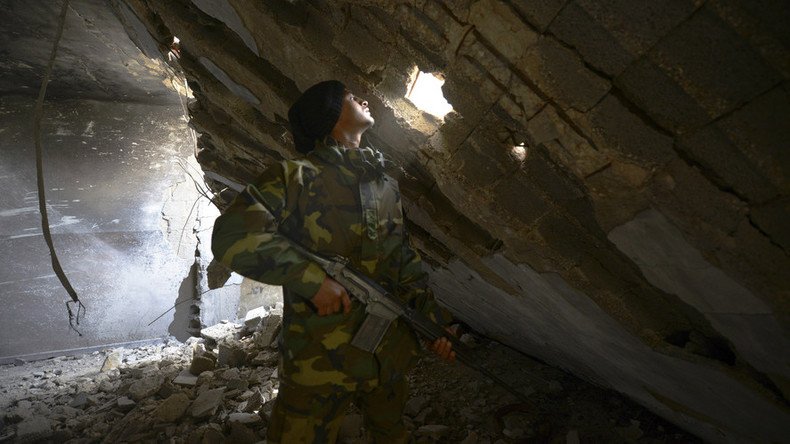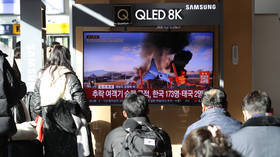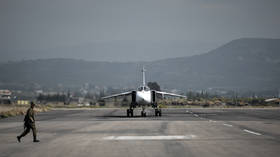US-based companies & Turkish arms manufacturers 'breaking Libya embargo' – UN report

Two US-based companied have allegedly broken the international arms embargo imposed on Libya during the Arab Spring revolution, UN investigators have reportedly concluded. The weapons were destined for two rival governments and allied militias fighting for control.
Investigators reportedly said the two US-based companies brokered an arms deal in 2011, as well as an Italian middleman working with a UK-based Libyan national on behalf of the Libyan authorities in control of Tripoli, the Wall Street Journal reported, citing a UN report.
The oil-rich North African nation is currently ruled by two opposing governments: the internationally-recognized Council of Deputies (based in Tobruk) and the Tripoli-based General National Congress.
Outgoing Obama attempts to disassociate himself from Libya's destruction https://t.co/6dMujLsk7H Op-Edge @JohnWight1pic.twitter.com/4Sr12IP6BN
— RT (@RT_com) 12 марта 2016 г.
Libyan and international officials reportedly told UN investigators the government in Tobruk had been receiving equipment from abroad through its own procurement operations and from countries supporting it. Those countries allegedly include Egypt and the UAE, according to two sources cited in the report.
Turkish arms manufacturers meanwhile appear to have sold and shipped weapons to Libyan actors, according to the report cited by the Wall Street Journal. Turkish officials reportedly told the UN their government was committed to upholding the embargo, however, and that it was investigating the incidents detailed in the report.
Ukrainian companies are also said to be under investigation over alleged embargo violations.
Saad Sharada, a member of the congress based in Tripoli, reportedly confirmed that his political allies have received military personnel carriers, but denied they have procured any weapons.
“Arms and ammunition are continuing to be transferred to various parties in Libya, with the involvement of member states and complex networks of brokering companies that do not appear to be deterred by the arms embargo,” the report stated, according to the Wall Street Journal.
The large-scale research reportedly features over 100 pages of documentation, including copies of arms orders, invoices, end-user certificates and serial numbers and photos of armaments which were once held by national militaries but have ended up in the country. The report said, for instance, that Egyptian military hardware (including attack helicopters) ended up in the arsenal of the Tobruk regime, while the Sudanese government is alleged to have shipped ammunition, among other weaponry, the Wall Street Journal reported.
'S**t show': Obama blames UK & other European states for post-Gaddafi Libya 'mess' https://t.co/wLirmVGQXQpic.twitter.com/1yFcdToxji
— RT (@RT_com) 11 марта 2016 г.
Officials from the government in Tobruk have allegedly confirmed they have received weapons from friendly allies but say such arms were necessary for self-defense. “I don’t think the [UN] Security Council should have any say in who the Libyan government buys or receives weapons from,” the Wall Street Journal quoted Abdulsalam Nasiya, an official with the House of Representatives in Tobruk, as saying.
The Security Council is expected to consider evidence presented in the report to decide what measures to take against UN member nations and individuals allegedly involved. The report, which was submitted to the Security Council in January, is set to be made public in the near future.
Libya has been in turmoil since October 2011, when a NATO air campaign helped the country’s opposition topple long-time ruler Muammar Gaddafi. The battle for power between two rival governments in al-Bayda and Tripoli has led to 400,000 people being displaced, a spike in kidnappings, and the rise of radical groups, including Islamic State (IS, formerly ISIS/ISIL), Human Rights Watch (HRW) recently said in a report.












